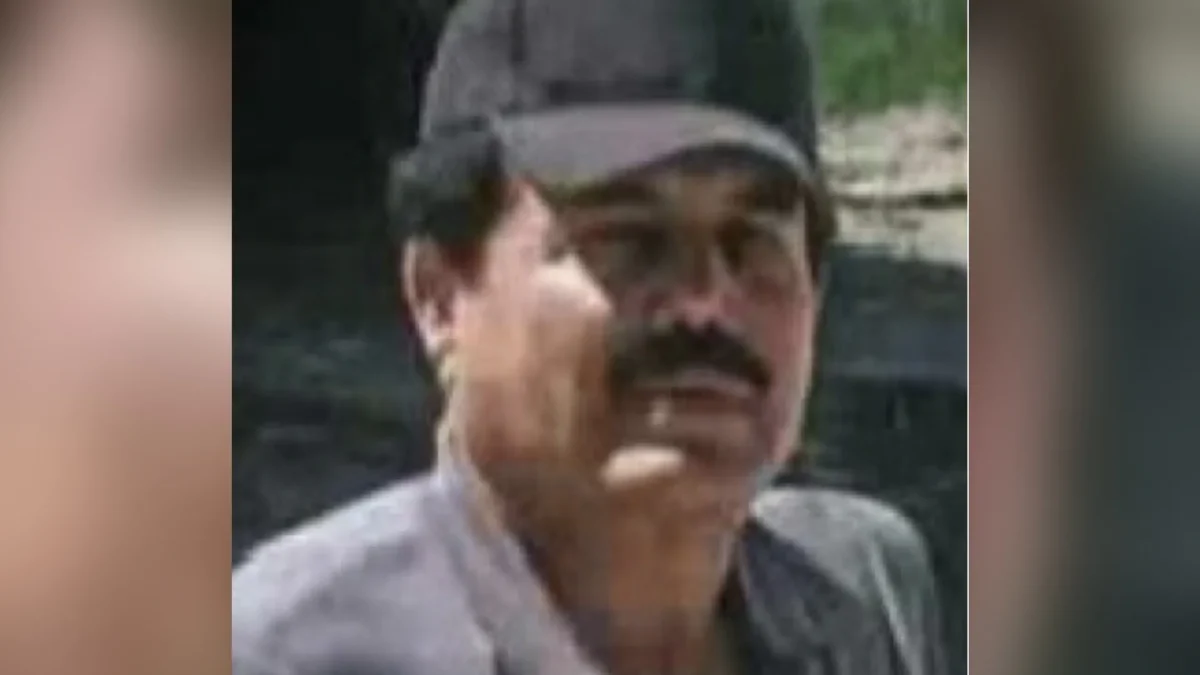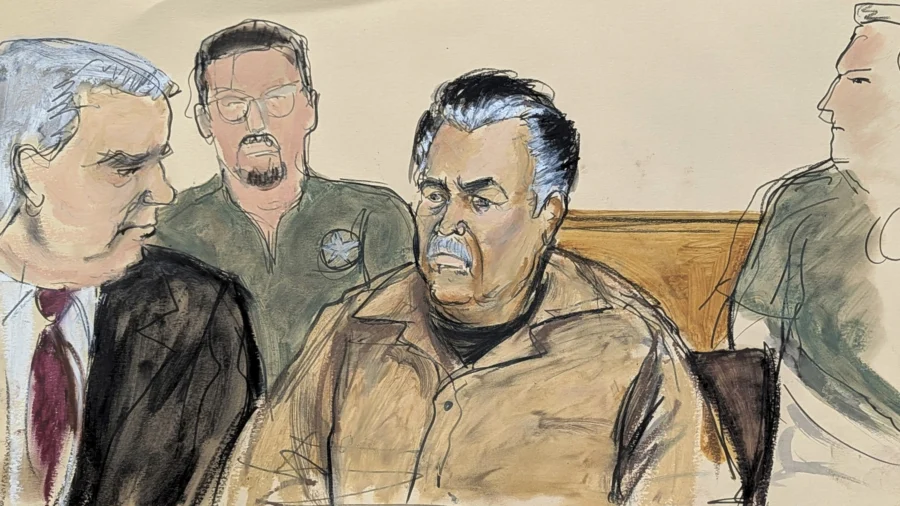NEW YORK—Ismael “El Mayo” Zambada, a powerful leader of Mexico’s Sinaloa cartel, pleaded not guilty Friday in a U.S. drug trafficking case that accuses him of engaging in murder plots and ordering torture.
Participating in a court hearing through a Spanish-language interpreter, Zambada gave yes-or-no answers to a magistrate’s standard questions about whether he understood various documents and procedures. Asked how he was feeling, Zambada said, “Fine, fine.”
His lawyers entered the not-guilty plea on his behalf.
Outside court, Zambada attorney Frank Perez said his client wasn’t contemplating making a deal with the government, and the attorney expects the case to go to trial.
“It’s a complex case,” he said.
Sought by U.S. law enforcement for more than two decades, Zambada has been in U.S. custody since July 25, when he landed in a private plane at an airport outside El Paso, Texas, in the company of another fugitive cartel leader, Joaquín Guzmán López, according to federal authorities.
Zambada later said in a letter that he was kidnapped in Mexico and brought to the U.S. by Guzmán López, a son of imprisoned Sinaloa co-founder Joaquín “El Chapo” Guzmán.

Zambada’s lawyer did not elaborate on those claims Friday.
U.S. Magistrate Judge James Cho ordered Zambada detained until trial. His lawyers did not ask for bail, and U.S. prosecutors asked the judge to detain him.
“He was one of the most, if not the most, powerful narcotics kingpins in the world,” Assistant U.S. Attorney Francisco Navarro said. “He co-founded the Sinaloa cartel and sat atop the narcotics trafficking world for decades.”
Zambada, 76, used a wheelchair at a court appearance in Texas last month, and U.S. marshals steadied him Friday as he walked into a federal courtroom in Brooklyn. He appeared to accept some help getting out of a chair after the brief hearing, then walked out slowly but unaided.
Perez said after court Friday that Zambada was healthy and “in good spirits.”
Sketch artists were in the small courtroom, but other journalists could observe only through closed-circuit video because of a shortage of seats.
In court and in a letter earlier to the judge, prosecutors said Zambada presided over a vast and violent operation, with an arsenal of military-grade weapons, a private security force that was almost like an army, and a corps of “sicarios,” or hitmen, who carried out assassinations, kidnappings and torture.
His bloody tenure included ordering the murder, just months ago, of his own nephew, prosecutors said.
“A United States jail cell is the only thing that will prevent the defendant from committing further crimes,” Navarro said.
Zambada also pleaded not guilty to the charges at an earlier court appearance in Texas. His next court appearance is scheduled for Oct. 31.
According to authorities, Zambada and “El Chapo” Guzmán built the Sinaloa cartel from a regional syndicate into a huge manufacturer and smuggler of cocaine, heroin, and other illicit drugs to the United States. The U.S. Drug Enforcement Administration has described defeating the cartel as one of the agency’s top operational priorities.
Zambada has been seen as the group’s strategist and dealmaker and a less flamboyant figure than Guzmán. Zambada had never been behind bars until his July arrest.
His “day of reckoning in a U.S. courtroom has arrived, and justice will follow,” Brooklyn-based U.S. Attorney Breon Peace declared in a statement Friday.
Zambada’s arrest has touched off fighting in Mexico between rival factions in the Sinaloa cartel. Gunfights have killed several people. Schools in businesses in Culiacan, the capital of Sinaloa, have closed amid the fighting. The battles are believed to be between factions loyal to Zambada and those led by other sons of “El Chapo” Guzmán, who was convicted of drug and conspiracy charges and sentenced to life in prison in the United States in 2019.
It remains unclear why Guzmán López surrendered to U.S. authorities and brought Zambada with him. Guzmán López is awaiting trial on a separate drug trafficking indictment in Chicago, where he has pleaded not guilty.
By Jennifer Peltz

